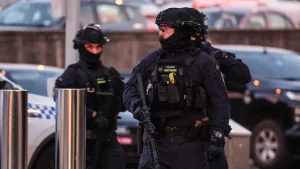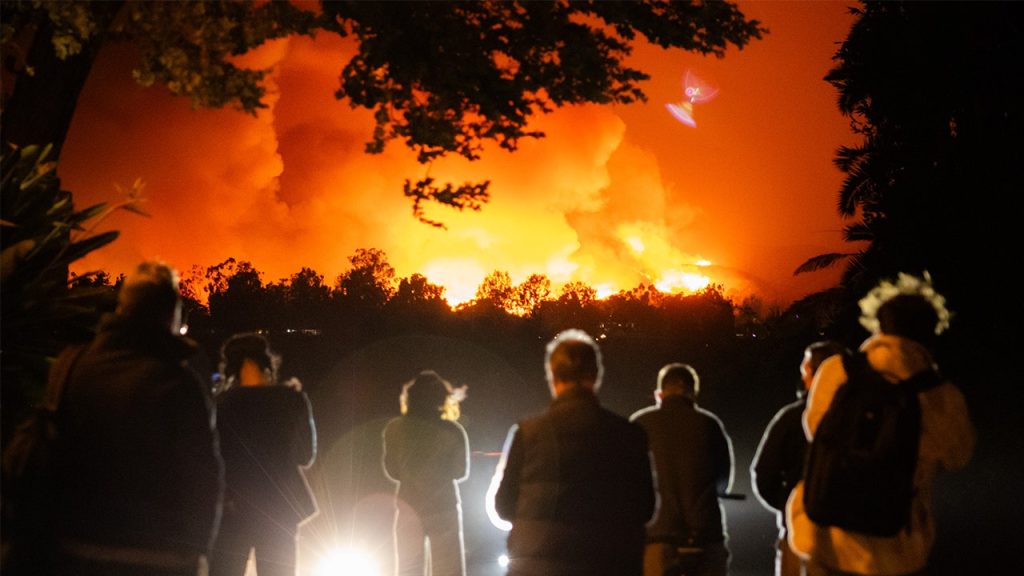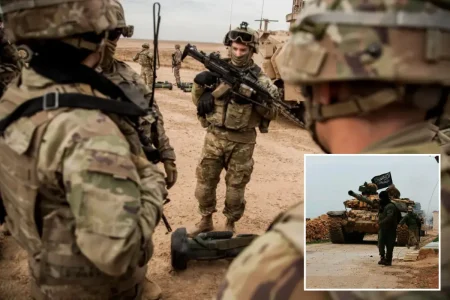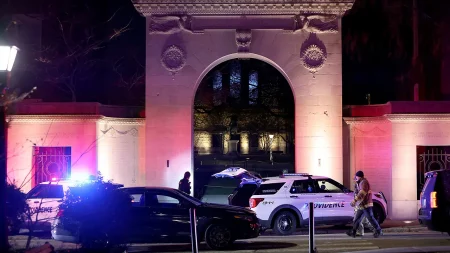The affluent community of Pacific Palisades, grappling with a devastating wildfire, is facing a secondary crisis: restricted access for private security personnel, hindering the protection of multi-million dollar homes from potential looting. While residents, many of whom are high-profile figures, rely heavily on private security, bureaucratic hurdles and overwhelmed emergency services are creating a logjam, preventing security teams from reaching their clients within the fire-affected zones. This situation exacerbates existing concerns in the area, already notorious for burglaries and home invasions, leaving residents vulnerable to property loss not just from the fire, but from opportunistic criminals.
Private security firms find themselves in a frustrating predicament. While eager to deploy personnel to protect their clients’ properties, they are faced with long wait times and unanswered calls when attempting to secure authorization from the Los Angeles Police Department to enter restricted areas. This bottleneck highlights the strain on resources and communication during a large-scale emergency. Some residents, desperate to safeguard their homes and belongings, have resorted to risky measures, bypassing official channels to access their properties, further underscoring the urgent need for a streamlined process to facilitate private security access. The situation underscores the complex relationship between private security and law enforcement during emergencies, raising questions about coordination and resource allocation.
The perceived disparity in treatment between private security firms with law enforcement backgrounds and those without further complicates the issue. While some argue that experience in law enforcement enhances credibility and facilitates collaboration with authorities, others contend that all licensed and qualified security professionals should be granted equal access during emergencies, based on their ability to provide essential protection services. This issue raises important questions about the criteria used to evaluate private security firms and the need for clear guidelines during emergencies. Furthermore, the absence of a clear protocol for private security access during emergencies can lead to confusion and inefficiency, potentially compromising the safety and security of residents and their properties.
The potential for looting amidst the chaos of the wildfire adds another layer of anxiety for residents, many of whom possess irreplaceable artwork and valuables. The fear of losing precious belongings to opportunistic criminals compounds the stress of evacuating or staying behind to protect their homes. This highlights the delicate balance between respecting the government’s role in managing the emergency and addressing the legitimate security concerns of residents. Private security experts draw parallels with past disasters, such as Hurricane Katrina, underscoring the vulnerability of communities during emergencies and the critical role of private security in protecting property and maintaining order. The scale of the wildfire and the potential for widespread property damage create a challenging environment for both public and private security forces.
The impact of the wildfire extends beyond the immediate area, influencing the entertainment industry and the allocation of security resources. The cancellation of Hollywood award shows has inadvertently freed up private security personnel, allowing them to be redirected to assist residents in affected communities. This unexpected reallocation of resources underscores the adaptability of the private security sector and its capacity to respond to evolving needs during emergencies. While the cancellation of events may be a setback for the entertainment industry, it presents an opportunity for private security firms to prioritize the safety and security of communities in crisis.
The ongoing wildfire in Pacific Palisades highlights the complex interplay between public safety, private security, and the unique challenges presented by high-net-worth communities during emergencies. The bureaucratic hurdles encountered by private security firms, coupled with the escalating threat of looting, emphasize the urgent need for improved communication, coordination, and streamlined access protocols between law enforcement and private security during large-scale emergencies. The lessons learned from this event can inform future disaster response strategies, ensuring that both public and private security forces can effectively collaborate to protect lives and property during times of crisis. The situation also underscores the importance of clear communication and collaboration between government agencies, private security firms, and residents to ensure a coordinated and effective response to future emergencies.











